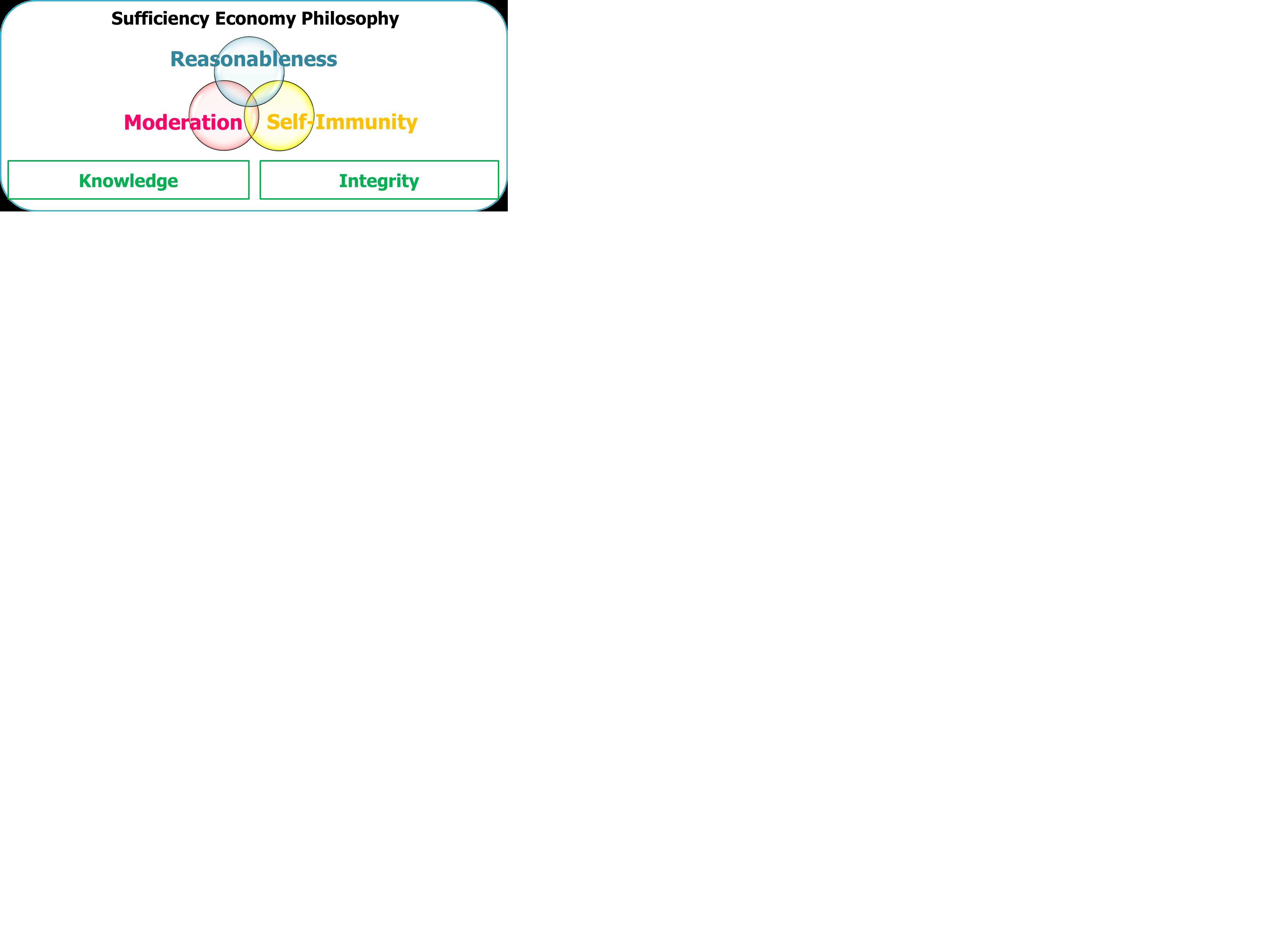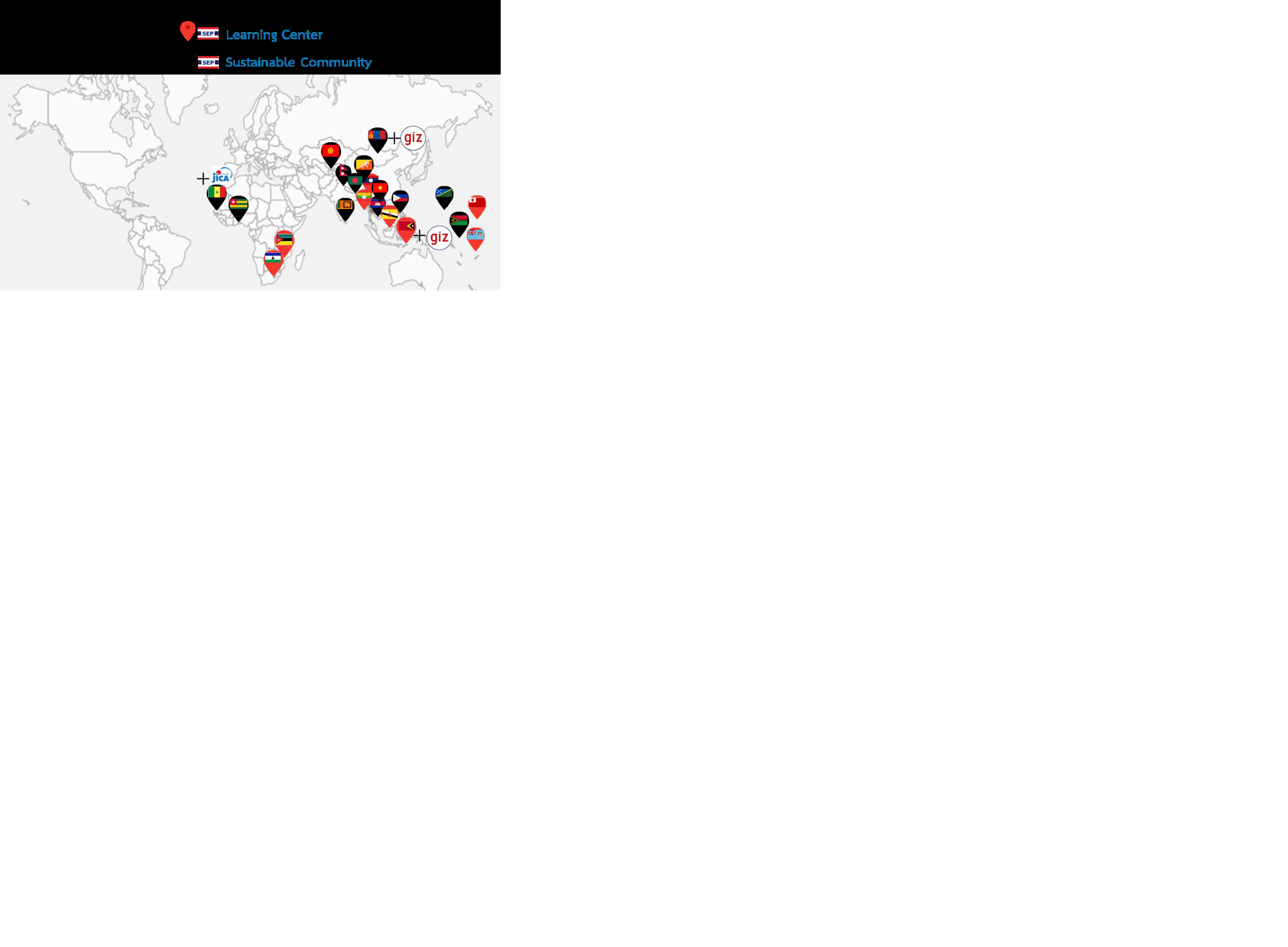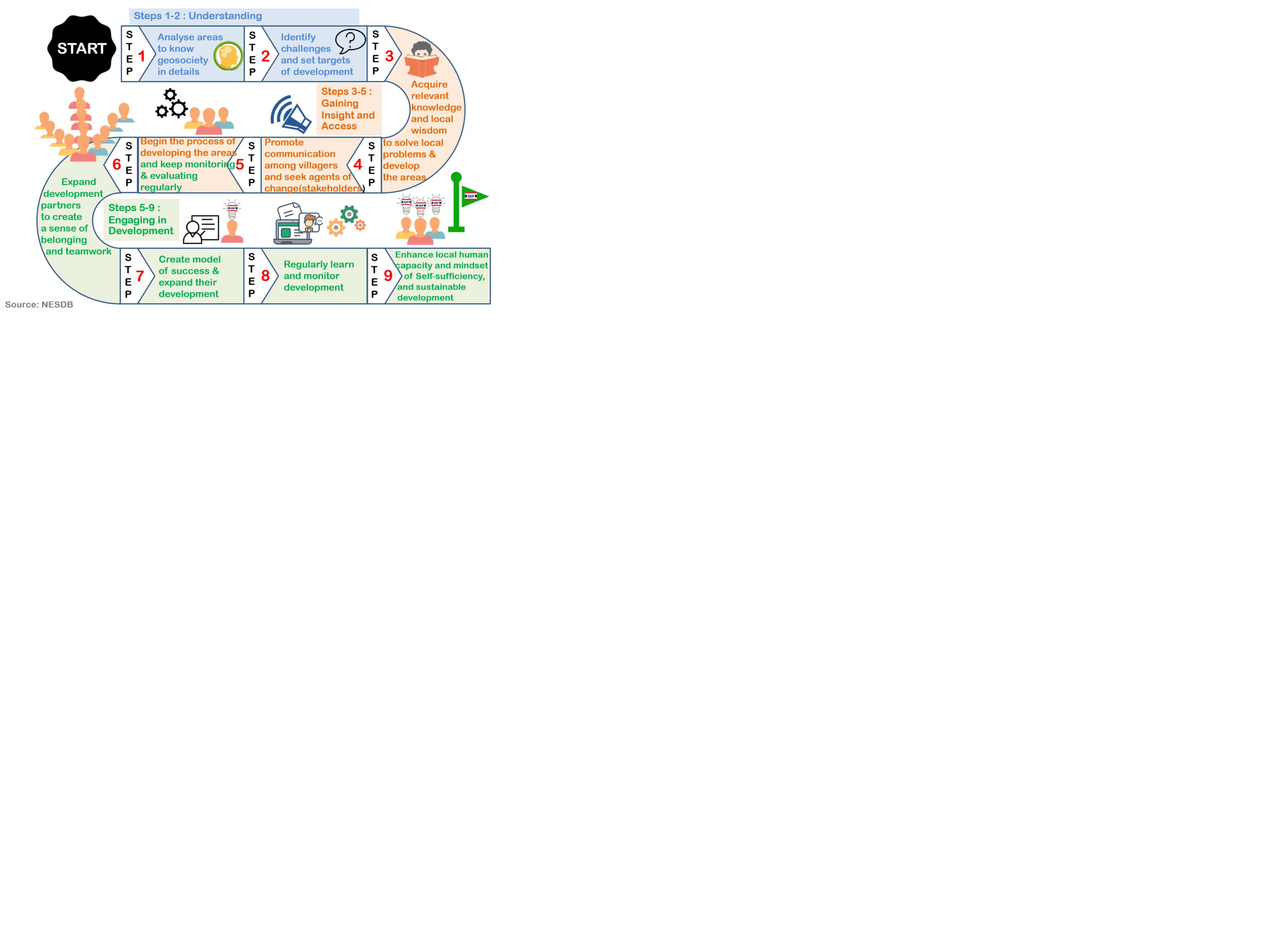The SEP for SDGs Partnership in Action
The SEP for SDGs Partnership in Action
วันที่นำเข้าข้อมูล 21 Jun 2021
วันที่ปรับปรุงข้อมูล 30 Nov 2022
The COVID-19 pandemic has caused a dramatic loss of lives, an unprecedented scale of social and economic disruption, an existential threat to many businesses as well as massive changes in ways of life as we know it. The pandemic has caught us off guard. It exposes not only the fragility of our existing world system, but also reflects and throws a strong light on the numerous downsides of globalization and exponential leap of development without balance and firm foundation, particularly at the grassroots level. In this difficult time, it comes as no surprise that the global drive towards the achievement of Sustainable Development Goals (SDGs) has either been standing still in many parts of the world or even facing a revert growth in some cases.
In this connection, the best way forward is not simply trying to resume normalcy, but striving to build back better by enhancing resilience during and after the COVID-19 era. For Thailand, the “Sufficiency Economy Philosophy,” or “SEP,” our homegrown development approach, conceived and developed by His Majesty King Bhumibol Adulyadej The Great, has once again come to our rescue. This philosophy, known also as the SEP, comprises of the 3 Principles of “Moderation,” “Reasonableness,” “Self-Immunity,” and the 2 Conditions of “Knowledge,” and “Integrity.”

As both a personal way of thinking and a development framework, the SEP attaches great importance to the engenderment of sustainable mindsets and the balanced step-by-step approach to development with people at the center. The SEP has succeeded in helping Thailand overcome many crises in the past, guiding us now in facing the impacts of COVID-19 and even extending its benefits to assist our friends in the international community.
Since the early 2000s, Thailand has applied the SEP as the guiding principle and framework of our international development cooperation with partners throughout the world. The SEP was also endorsed by the United Nations as an alternative approach towards the achievement of the United Nations’ 2030 Agenda for Sustainable Development and the Sustainable Development Goals (SDGs). While the SDGs serve as the global goals for sustainability, Thailand believes that the SEP can serve as a “compass” and a “rudder” for the international community to achieve those goals together without leaving anyone behind.
In conjunction with the Royal Thai Embassies, Consulates-General, Permanent Missions of Thailand abroad, TICA or Thailand International Cooperation Agency, our Friends From Thailand Volunteers and Thai experts from all sectors of the country work hand in hand under the name “Team Thailand for Development Cooperation,” in partnership with partner countries and international organizations to drive forward sustainable development and the achievement of the SDGs.
From Theory to Practice: The SEP in Action
At present, there are development projects based on the application of the SEP in over 20 countries around the world. The projects are conducted through two main types. The first one is the establishment of SEP learning centers, while the second one is the development of SEP-sustainable communities. Each project type utilizes development models, experiences and success stories Thailand has accumulated during many years of applying the SEP in sustainable development, both domestically and internationally. TICA also seeks to conduct development projects using the knowledge and techniques that suit the local topographical and sociological conditions, taking into account the 4 dimensions of the SEP: economy, society, environment and culture.


To implement our SEP-led development projects, TICA applies the 9 steps of development based on the concepts of “Understanding,” “Gaining Insight and Access,” and “Engaging in Development.”
n countries around the world, TICA has undertaken development cooperation projects based on the application of the SEP with our partner agencies in host countries. Partners of TICA range from Thailand’s neighboring countries such as Cambodia, Lao PDR, Myanmar and Vietnam to countries in Africa, the South Pacific as well as South, East and Central Asia. The projects emphasize the achievement of sustainable development through the promotion of food security and the communities’ ability to rely on themselves. To this end, TICA has introduced agricultural techniques and related knowledge that help the local population develop necessary skills and acquire appropriate knowledge for the improvement of their livelihoods, group formation and network creation, with TICA standing ready to provide various types of support when needed.
Ways Forward in the New Normal Era
To respond to the wide range of challenges impacted by the COVID-19 pandemic, TICA has designated several areas of priority in conducting our future development projects. This was done while taking into account the sectors that are most affected by the pandemic, or the sectors that have demonstrated greater centrality in light of the COVID-19 situation. These areas of priority are (1) Health Security (2) Job Security (3) Food Security and (4) Energy and Environmental Security.
Apart from the review and reprioritization of the projects, TICA has taken steps to preserve the momentum of our development cooperation abroad. Many activities have been adapted to be online or using TICA’s local learning centers abroad to serve as training grounds for personnel of other ongoing projects in the same country. Numerous online training courses have also been conducted for both the target communities under TICA’s projects and other communities who have expressed their interest in learning about the SEP and its application. Apart from the online courses, TICA also seeks to promote the understandings on the SEP worldwide by producing online and offline materials on the SEP and related knowledge, as well as by expanding its global and local network by holding various online seminars for prospective partners, coordinating with the Royal Thai Embassies and Consulates-General to reach out and promote the awareness of the SEP abroad, and by organizing a study visit for foreign diplomats, international organization officials, international development agencies’ officials, and the recipients of TICA scholarships who are currently in Thailand.
In recognition of the pressing needs for a joint effort and effective response to the ongoing challenges, TICA is looking forward to expanding our network of international development cooperation with partners around the world in order to share the benefits of the application of the SEP as Thailand’s gift to the world. The gift that Thailand believes will be crucial in steering forward the world in its path towards sustainable development and to build back better in the face and the aftermath of the COVID-19 pandemic.
สถานเอกอัครราชทูต ณ กรุงเทลอาวีฟ
Office Hours : Monday - Thursday, 9.00 - 12.00 hrs. and 13.00 – 17.00 hrs
Friday, 9.00 - 13.00 hrs.
(Except public holidays)
** Office hours may vary from consular service hours. Please check the details in each consular service section.